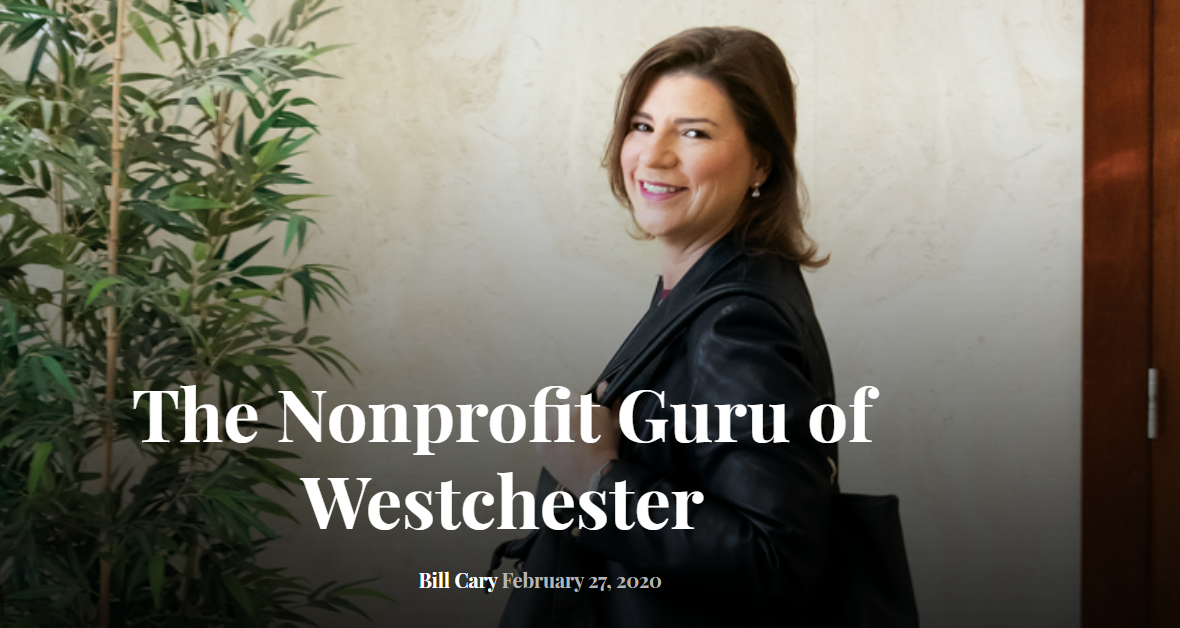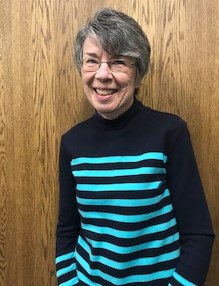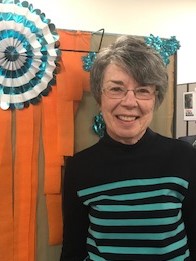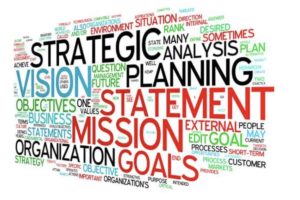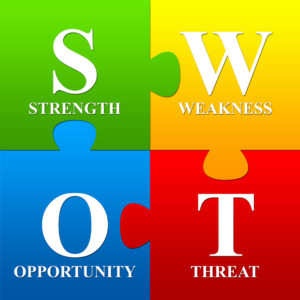Jennifer Flowers has survived multiple recessions and other roadblocks en route to founding her breakthrough niche business, Accreditation Guru, Inc.
Photos by Stefan Radtke
In 2009, Jennifer Flowers was working in Lower Manhattan, at the Council on Accreditation, which evaluates and accredits for-profits, nonprofits, and government entities. When she found herself abruptly laid off from her job one fall morning, she made a large placard about her plight and headed over to nearby Federal Hall, where President Obama was due to give a speech about the economy.
Fortunately, she was positioned directly across from a bored press corps, which had been shut out of any Obama interaction that day. Without a president to interview, why not check out the lady with the big sign?
Sure enough, Flowers, who was among one-fifth of the staff who were laid off that mid-recession morning at the council, landed in the pages of the New York Post a couple of days later, with a Reuters photo of her and an upraised sign, which read: “LAID OFF TODAY 9:30 A.M. HIRE ME.” Other outlets ran the photo, as well, and MSNBC did a short video of her as part of a “Faces of the Recession” segment.
“The fact is, I needed to do something,” Flowers told the Post. “I didn’t want to just go home. I stayed out there and did something that made me feel productive.”
It’s a good story. It’s also a window into who Flowers is and how she operates — dynamic, take-charge, no-nonsense, yet good-natured, with a sense of humor.
Within months, Flowers was firmly back on her feet and working for herself as the founder and CEO of Accreditation Guru, Inc. She has created an entirely new business model and niche service in the nonprofit world that helps human-service groups navigate the rigorous and time-consuming accreditation process. Ten years later, Accreditation Guru has worked with more than 200 clients across the U.S., Canada, Puerto Rico, and Saudi Arabia.
In the process, Flowers has emerged as a trusted and nationally recognized expert in the complicated, mandate-heavy field of accreditation, which offers
human-service organizations professional recognition for meeting specific quality standards in how they deliver services. “I’m the go-to accreditation person for a number of national organizations,” Flowers says. “I work with terrific people, and this is doing what I love, making a real impact. It’s very rewarding work.”
To earn accreditation, an organization must go through an objective review by an independent accrediting body. Once they earn accreditation, it means they have gone beyond minimum licensing standards into a higher realm. For example, if a group home or foster-care agency were striving to earn national accreditation from CARF, COA, or The Joint Commission, it would need to not only write/revise hundreds of policies, procedures, and plans, but also have the processes behind these documents to fully be in compliance with the accreditation standards. Flowers and her team are skilled at navigating that typically arcane and painstaking process of procedural and documentary compliance while providing long-term strategic planning and training, including techniques for developing an effective board of directors and leadership team. To these ends, Accreditation Guru runs boot camps and workshops, creates mock surveys, and performs on-site facilities reviews.
“I’ve been able to grow my business at a rate of 20 percent a year, and I want to keep doing that. I love what I do.”
—Jennifer Flowers, Founder & CEO, Accreditation Guru
In addition to deriving great satisfaction from working for herself, Flowers — who grew up in the San Francisco Bay area and earned a bachelor’s in sociology from UC Berkley — says she is also proud that most of her clients are nonprofits that “do a lot of good in the world,” in fields like education, residential treatment, foster care and adoption, and behavioral healthcare. In Westchester, her clients include Valhalla-based Cardinal McCloskey Community Services and The Arc Westchester, a Hawthorne-based nonprofit that supports people with developmental disabilities.
“These nonprofits perform vital services for families in need,” Flowers says. “They are a fabulously dedicated group [who are] not in it for the money. Our role is to help these organizations become more effective,” she says. “What we do really is transformative.”
In addition to her daily responsibilities, Flowers serves on the board of directors of the Northeast STEM Starter Academy in Mount Vernon and is co-chair of Westchester Companies for Kids, which is affiliated with the Westchester Children’s Association. She’s also active in the Business Council of Westchester, as both a volunteer ambassador and as creator-moderator of the popular BCW panel discussion titled “Corporate Social Responsibility Done Right.” In 2015, Flowers won Ambassador of the Year honors from the BCW.
“Jennifer has used her business acumen and connections to help new members maximize their memberships and is the go-to person when there are questions about nonprofit governance and corporate responsibility,” says BCW president/CEO Dr. Marsha Gordon, who adds that Flowers “is widely respected within the Westchester business community.”
Since her company’s inception, Flowers has expanded her team to include one full-time employee, one part-time employee, and 12 accreditation consultants who are scattered across the country “from Florida to Alaska,” she says. “Each one works as an independent contractor, specializing in one or two types of accreditation. We keep adding them on as the company grows.”
Though Flowers asserts that the company culture is “collaborative and all about excellence,” she is quick to point out that she and her crew have a lot of fun, too.
“I know what [Jennifer] wants from me, but how I get the job done is really up to me,” says accreditation consultant Carol Smith, who joined the company in 2016. “She definitely understands that she is working with long-term professionals,” adding that even though Flowers is “really enthusiastic, really smart, and very outgoing,” she is also “very serious and thoughtful about things. There is a lot of respect there.”
Like many businesspeople with a national and international roster of clients, travel eats up a large chunk of Flowers’ schedule. She flies regularly to attend about two dozen state and national conferences a year, and occasionally to meet with clients and her team. The good news about all that travel is that she doesn’t need a corner office — or really much of an office at all in the traditional sense. Instead, she has opted for a stripped-down office at Carr Workplaces on Mamaroneck Avenue in Harrison that she shares with a colleague to complement her home office.
Along with travel, public speaking in front of large groups has become a big part of her job, which is fine with her. “I was good at public speaking even in grade school,” Flowers says. That comfort level likely came in quite handy in 2018, when she was invited to speak at the the National Children’s Alliance in Washington, DC and to the Child Welfare Strategy Group of the Annie E. Casey Foundation in Baltimore, MD on the topic of accreditation under the Family First Prevention Services Act. Last year, Flowers had some 20 speaking engagements, all over the U.S., on her calendar.

Jennifer Flowers has parlayed her knowledge of nonprofit accreditation into a thriving business helping human-service groups navigate the accreditation process.
Supplementing her A-game communications skills, Flowers also speaks Spanish, having spent her junior year of college at the University of Salamanca in Spain. That linguistic skillset was enhanced during her stint in the Peace Corps in Costa Rica, from 1993 to 1995. At the time, she was part of the Small-Business Development Program, stationed in Ciudad Quesada, a few hours north of San Jose. “I worked with a local tourism board and a women’s collective artisan group, among others,” Flowers says.
Just one year before she headed off to Costa Rica and the Peace Corps, she’d earned her MBA in international management from Thunderbird School of Global Management, in Glendale, AZ — smack in the middle of another recession. “It was a bit of ‘Which comes first… a good job or the Peace Corps?’” she recalls. “The Peace Corps won.”
Flowers arrived in New York from San Francisco in the fall of 2001, right after the 9/11 terrorist attacks. Despite it being an awful time to be in the city, she fell in love with New York and knew she was here to stay. She made her way to Westchester in 2007 and now resides in a three-bedroom Tudor in Mamaroneck that’s exactly eight minutes from her office.
To stay in shape and get her mind off work, Flowers is a regular at the Life Time fitness club in Harrison. When it snows, you’ll find her on cross-country skis or snowshoes at Saxon Woods Golf Course in Scarsdale or a local park with groomed trails. When the big flakes come, however, she heads to Fahnestock Winter Park in Putnam County.
By the way, if Jennifer’s name sounds familiar, you can thank Chappaqua’s Bill Clinton for that. The other Flowers, Gennifer, gained notoriety by alleging a longtime affair with the president and nearly bringing down Clinton’s 1992 presidential campaign. This Jennifer Flowers laughs it off easily, enjoying the puzzled looks on people’s faces when they are first introduced. “The silver lining is that no one forgets my name,” she says.
Bill Cary is a freelance writer who splits his time between an apartment in Hell’s Kitchen and an old chicken farm in the Ulster County hamlet of Stone Ridge.

